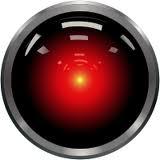
Computers in chess... Good or Evil?
Computers are an essential part of the modern world and it is impossible even to imagine our everyday life without them. As a matter of fact, you wouldn't be able to read this article if there were no computers and the miracle called "Internet". But let's talk about the computer's impact on our beloved little world of 64 squares. Is it positive or negative?
Please do not rush to call me the Luddite who hates Progress. Let's just analyze the positive and negative sides of the computer's invasion.
It is a well-known fact that computer is an excellent tool to study chess. And I am not even talking about the unlimited amount of chess related material you can find on the Internet. Simply by using a chess engine you can significantly improve your chess. Just ask Hikaru Nakamura who claims that he hasn't read a single chess book and credits all his achievements to the countless hours he spent with a computer. So, you play with a computer, analyze with a computer and at some point you start think like a computer... at least according to Nakamura. Hikaru likes when he gets compared to a chess engine and therefore in the following game we can witness the battle between the best human computer and one of the best silicon monsters of that time, Crafty. The game is remarkable because the majority of computers don't have the word 'resign' in their vocabulary and play till the bitter end. Playing with a lonely King against 4 or 5 pieces and pawns of your opponent is not the best strategy against one of the World's best players. We discussed this problem here: ( http://www.chess.com/article/view/what-is-a-proper-moment-to-resign-a-game ) Hikaru found a very elegant solution. He ...well, I am not going to spoil the fun, judge for yourself!
Still, I wouldn't recommend the Nakamura's way of learning chess to everyone. If you don't have his enormous talent, I would advise the traditional approach of learning using chess books. I still believe that one comment of Capablanca or Fischer is more valuable than a dozen of games against a chess engine. Moreover, in my opinion, had Nakamura in his childhood combined his purely computer-based training with old fashioned chess books, then the number one player in today's rating list could have been different. I find it very symbolic and significant that the current number one Magnus Carlsen is not a 'human computer' in any way. He is a superstar, he is genius, but he is not a computer! When we analyze his games we can see reflection of old masters: the technique of Capablanca, calculation precision of Kasparov and the Fischer's desire to win. But I digress here...
I still think that a computer is invaluable teaching tool. For example, when I analyze my student's games and see that he mentally gave up at some point, I ask him what happened and he usually says that the position was completely lost and the game was over anyway. Then I suggest him to play this position against a computer and see if he would be able to beat the beast at least once. Or when you analyze a very dry, technical position with a computer, it constantly surprises you with a maze of unexpected combinations. But there are certain limitations you should know about before you start working with a computer.
You can sum up all these limitation with one short statement: 'computers do not understand chess'! Yes, they can beat the World Champion and yet they don't really understand chess. It is all about brute force or by other words an amazing ability to calculate, calculate, calculate. It is for this reason Botvinnik called a chess playing computer a 'tireless idiot'. If you are confused, let me show you a simple example:






